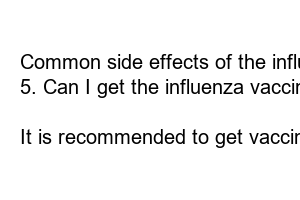독감 인플루엔자 무료 국가예방접종
Title: Stay Protected: Free National Influenza Vaccination
Subheadings:
1. The Importance of Influenza Vaccination
2. Accessing Free Influenza Vaccination
3. Benefits of the National Influenza Vaccination Program
4. Who Is Eligible for the Free Vaccine?
5. Overcoming Worries and Concerns
6. Timely Vaccination: A Small Step That Makes a Big Difference
7. Summary of the Entire Article
With the flu season fast approaching, it is crucial to take proactive measures to protect ourselves and our loved ones from the influenza virus. One of the most effective ways to avoid falling prey to this contagious illness is to get vaccinated. However, the cost of vaccination can be a hindrance for many, which is why the availability of free national influenza vaccination is a groundbreaking initiative.
The Importance of Influenza Vaccination:
Influenza, commonly known as the flu, is a highly contagious respiratory illness caused by the influenza virus. It can range from mild to severe, and in severe cases, it can even lead to hospitalization or, in some instances, be fatal. Vaccination plays a critical role in reducing the risk of infection and its complications, protecting both individuals and their communities.
Accessing Free Influenza Vaccination:
Through the national influenza vaccination program, individuals can receive the vaccine at no cost, making it accessible for a wider range of people. This ensures that financial constraints do not become a barrier to staying protected.
Benefits of the National Influenza Vaccination Program:
With the free national influenza vaccination, it becomes easier for everyone, regardless of their socioeconomic background, to prioritize their health and well-being. By removing the cost factor, more people can take advantage of the protective benefits of the vaccine.
Who Is Eligible for the Free Vaccine?
The free national influenza vaccination program is typically available for various groups, including vulnerable populations, healthcare workers, children, and the elderly. These prioritized groups ensure that those who are most at risk receive the necessary protection against the flu.
Overcoming Worries and Concerns:
Some individuals may have concerns or doubts regarding the influenza vaccine. It is important to note that the vaccine undergoes rigorous testing and ongoing monitoring to ensure safety and effectiveness. **Healthcare professionals can provide detailed information and address any concerns** to alleviate any worries surrounding the vaccine.
Timely Vaccination: A Small Step That Makes a Big Difference:
Getting vaccinated against the flu early in the flu season can provide optimum protection. By availing the free national influenza vaccination, individuals can safeguard themselves and contribute to reducing the overall spread of the virus within their community.
Summary of the Entire Article:
The availability of free national influenza vaccination program is a significant step in ensuring the health and well-being of individuals across the country. By allowing easy access to the vaccine, regardless of financial constraints, more people can prioritize their health and protect themselves from the flu. The program benefits a wide range of individuals, including vulnerable populations, children, and the elderly. Overcoming worries and concerns, individuals can receive crucial information from healthcare professionals, helping them make informed decisions. By getting vaccinated on time, individuals play an active role in reducing the spread of the virus and minimizing its impact on the community as a whole.
——-
FAQs:
1. Is the influenza vaccine completely free?
Yes, the national influenza vaccination program provides the vaccine at no cost.
2. Who should get the influenza vaccine?
The vaccine is recommended for everyone above the age of 6 months, with priority given to vulnerable populations, healthcare workers, children, and the elderly.
3. How effective is the influenza vaccine?
The effectiveness may vary each year due to the different strains of the influenza virus, but studies have shown that vaccination reduces the risk of illness, hospitalizations, and even death.
4. What are the common side effects of the vaccine?
Common side effects of the influenza vaccine include soreness at the injection site, mild fever, and fatigue. These typically subside within a few days.
5. Can I get the influenza vaccine if I am pregnant?
Yes, pregnant women are encouraged to get vaccinated to protect both themselves and their unborn child.
6. When is the best time to get the influenza vaccine?
It is recommended to get vaccinated before the flu season begins to ensure optimal protection. However, getting vaccinated at any time during the season can still be beneficial.

